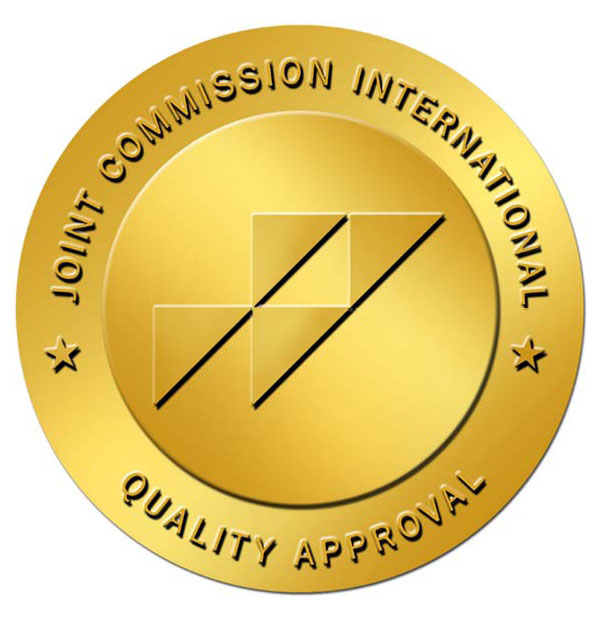What is it?
Cancer is a life-changing disease that often is accompanied by a lot of psychological stress. For example, patients have to cope with the fact that their daily life is temporarily or permanently changing, that they may have to leave their profession or be limited in health. This may be intensified by social or mental problems. As a result, cancer patients may develop a mental illness, such as depression or an anxiety disorder. Oncopsychologists specialize in caring for and counseling cancer patients and their relatives to mitigate these effects.
A malignant tumor can usually be made visible with imaging procedures, but the thoughts and feelings of a cancer patient cannot. The scientific specialty, psycho-oncology, explores the mental impact of cancer on patients and develops ways to support. Since cancer also affects the living environment, there is the concept of psychosocial oncology.
Numerous statistical studies have shown the high effectiveness of psychological counseling and therapy in improving the mental health of patients and their family in the fight against cancer: the level of stress, anxiety and depressive manifestations is reduced. Individuals with poor social support experienced greater tumor growth and progression due to increased pro-inflammatory mechanisms. This causes an increase in angiogenesis required for cancer growth due to stress-related production of cytokine (IL 6) affecting vascular endothelial growth factor.
What is oncopsychologist for?
It is difficult to predict how a person will react to the cancer-related stress. People behave differently even under similar circumstances. The risk of mental problems in cancer patients depends on the type of tumor, as well as the severity of the disease. The mental situation is also determined by the consequences of the disease and the therapy side effects. These include, for example, pain, nausea or exhaustion. But not all patients have them.
Studies have shown that the mental burden is relatively high if the disease has progressed, that is, the tumor has returned despite treatment, or metastases are detected. The first days and weeks after the cancer diagnosis are especially burdensome for many people. In addition, some sufferers find the time after completion of treatment difficult. This may be, for example, due to the fact that returning to everyday life is more difficult than expected. But anxiety about the relapse can also cause some pressure.
Not everyone likes to talk about their emotional state. Some are confused by their feelings, others find it difficult to express their burden in words. It is often difficult for others to understand if patients are "just" depressed or if they are in desperate need for professional support. This uncertainty affects both relatives and friends, as well as attending physicians.
Experts have conducted surveys of cancer patients. With comparatively high certainty the results indicate possible problems: about a third of all patients experience a psychological disorder - depression. Specialists recommend intensive support and psychotherapeutic assistance for these patients.
When the help of oncopsychologist is necessary
Depression may increase the risk of recurrence after cancer treatment and reduce adherence to anticancer therapy. Since pain and mood disorders share several common pathogenetic mechanisms, depression can lead to a decrease in pain threshold. The inflammatory background, mainly associated with pro-inflammatory cytokines, is a central factor linking depression, distress, pain, and cognitive impairment in cancer patients.
Psychological assistance in oncology is necessary in the following cases
- difficulties when waiting for medical results
- ambivalence about treatment
- preparation for cancer treatment (surgery, chemotherapy, radiation and hormone therapy)
- anxiety/depression associated with cancer and its treatment
- combating side effects (nausea, sleep disorders, fatigue, etc.)
- difficulties in adaptation after treatment
- anxiety about relapse
- the need to optimize the life quality.
The help of a psychologist in oncology may be needed for those who need to learn how to live with the cancer of a relative or deal with grief and the loss of a closed one. Oncopsychologist will help to return to old life and work.
Initial individual consultation
At the first consultation, the psychologist assesses the mental state of the patient, draws up a program of psychological assistance and makes recommendations. Such a single meeting is aimed at solving a specific request - reducing anxiety, setting goals, building a strategy for communicating with children, other relatives and close ones. It also allows to determine the need for further psychological support and get the support of a specialist in an acute critical situation.
The stressful situation of establishing and confirming a diagnosis at the consultation of an oncologist leads to a feeling of loss and shock. Immediately after it, the oncopsychologist helps to overcome emotional stress, set short-term goals and get out of a paralyzing state.
Initial family consultation
Cancer diagnosis affects the entire family, changing the nature of communication between its members. A changed life situation may require building relationships on a new level - how to ask family for help, talk about needs and support each other. Conducting a family consultation, the psychologist focuses on family rehabilitation, support and drawing up a joint action plan in ordinary and emergency situations.
Initial consultation of relatives
A relative or close person who directly helps the patient experiences its own emotional difficulties in connection with cancer - fear, increased responsibility, fatigue, loss and poor awareness of support methods worsens the mental state, which negatively affects the non-sick person's own life.
Oncopsychologists consult not only patients, but also work with their relatives. Close people, for whom the cancer diagnosis also brings large changes in their life situation, also need help.
The main goal of therapeutic conversations is to help the sufferers to accept their own situation and cope with pressure that prevents them from looking forward. In this way, patients and relatives become able to willingly and actively participate in the necessary therapeutic activities, and the chances of success in cancer therapy are increased.
At an individual meeting of a patient’s relative and a psychologist, the request of the person who applied is resolved, psychological support is provided, and the relationship between the family member and the patient is analyzed, which helps to evenly distribute the emotional burden and restore strength.
What problems does psychological support in oncology solve?
An oncology psychologist integrates, analyzes, and guides in accordance with the assessment and treatment of emotional, physiological, and medical components of oncological disease. Thus, he is aimed at work closely with the medical team.
At the first evaluation meeting, the oncopsychologist will try to determine the cause of psychological problems. All possible problems associated with the disease will be taken into account.
The patient may experience one or more of these components:
- side effects of medical treatment (hormone imbalance, emotional reactions to specifics of oncological treatment)
- problem of adaptation to the disease reality
- result of emotional problems preceding cancer diagnosis
- secondary existential striving for the emotional challenge of living with cancer
- any other issues related to the disease
It is important to emphasize that the presence of an emotional problem during the provision of psychological assistance to a patient with oncology is a very important element. From screening to medical examination, treatment, follow-up to the end of life if applicable, psychological monitoring for cancer is an important component of cancer treatment. It is neither a luxury nor an addition, psychological monitoring is often one of the keys to harmonious oncology treatment, allowing to develop life and cope with the uncertainty peculiar to cancer.
The consequences of cancer are various. One of these late complications may be the so-called chronic fatigue syndrome (CFS). Fatigue syndrome is an emotional, but first of all physical exhaustion that often comes only in a few years after completion of cancer treatment.
Patient often develops severe fatigue that is unrelated to current changes in activity levels. This condition is also characterized by the following symptoms:
- decreased motivation for daily activities;
- not relaxing or restoring night sleep
- diffuse pain in extremities
- obvious emotional irritability







 public offer
public offer











